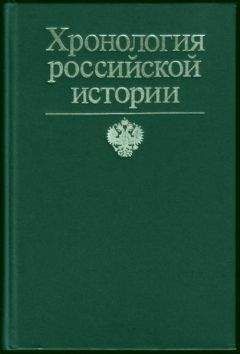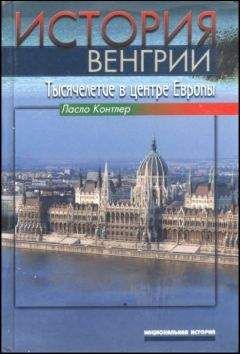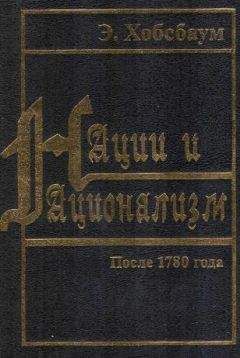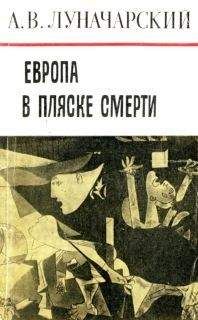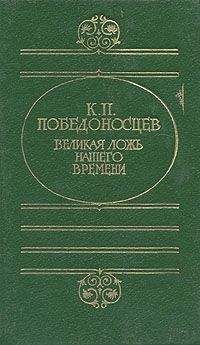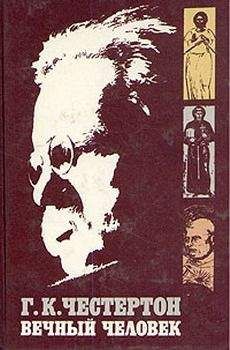Вернер Зомбарт - Буржуа

Скачивание начинается... Если скачивание не началось автоматически, пожалуйста нажмите на эту ссылку.
Жалоба
Напишите нам, и мы в срочном порядке примем меры.
Описание книги "Буржуа"
Описание и краткое содержание "Буржуа" читать бесплатно онлайн.
Как создался дух нашего времени и в каких формах он ныне проявляется, — вот что пытается описать настоящая книга, путем изложения генезиса носителя этого духа и его представителя — буржуа. Для того чтобы представления читателя никогда не терялись в царстве теней абстракции, но, напротив, были всегда полны созерцаний живой жизни, я поставил в центр моего исследования самого человека и выбрал то заглавие, которое эта книга носит. Однако лишь духовная сторона человеческой разновидности — буржуа — будет нас занимать, а не его общественные отношения: это выражено в подзаголовке: «Этюды по истории духовного развития современного экономического человека».
313. Ant. S. mor. II. 1, 5, 37.
314. Ant. S. mor. II, 46.
315. Ant. S. mor. II. 37.
316. «…quia pecunia eius habet rationem capitalis, potest ex ea ratione suae capitali. tatis exigere» (S. mor. II, I, c. VI, 15). «Ut magis possent cum ilia pecunia lucrari…» (Ibid. 29). «quia iste sua pecunia jam habet rationi capitales, potes ex ea ratione sui capj. talitatis exigere in praetato casu» (Bern.Sien. Sermo XLII, c. II. Opp. 2, 252). «Adver-tendum quod, si creditor ex ilia pecunia nihil fecisset, nec facturus fuisse supponitur unde lucrum aliquod consequi posset, utpote, quia pro certo supponitur quod earn simpli. citer expendisset seu in area servasset, turn ad nullum interesse lucri obligatus est.» (Ibid. C. III).
317. «…tenetur talia lucra sic percepta restituere, noun. obstante quod depositarii mul-tum cum ipsa lucri faerint, nam lucrum industriae fuit, non pecuniae, et periculo sub-stabat amissionis cuius, deponens nolebat esse particeps» (Ant. t. II, T. 1. c. V. 34).
318. «Quaritur an dans pecuniam mecratori ad mercandum vel artific ad materias emen-dum, et ex eis artificiata faciendum cum pacto, vel etiam sine pacto, sed cum hac inten-tione principali, quod capitale sit salvum, et partem lucri habeat: num quid talis est usura-rius?»
Да, потому что устранен риск (Ant. S.th. II. 1, 5, 37).
319. «si periculum capitalis spectaret ad utrumque, tune cum societas contrahatur per talia verba, tune bene est licitus, licitust est enim, quod unus socius ponat pecuniam et alius operam et sic suppleat labore, quod deest in pecunia» (L.c.).
320. «pecunia est se sola minime est lucrosa nec valet seipsum multiplicare; sed er indu-stria mercatium fit per eorum mercationis lucrosa» (Ant. S. mor. II. 1, 6, 16). «Sillam pecuniam mutuatam in licitis negotiis lucrum illud adtribui debet et deputari industriae suae et labori, cum etiam substaret periculis» (ed. 1, 36).«…in recompensationern laboris industriae et expensarum» (1. c. II. 16).
Особенную заслугу работы Келлера составляет то, что он направил внимание на понятие «industria» У схоластиков.
321. «…sunt nobiles qui nolunt laborare; et ne pecuina eis deficiat paulatim consumen-do, tradunt earn mercatori vel trapezitae, intendentes principalier aliquid annuantim reci-pere ad discretionern corum salvo tamen capitali: tamen dare usura est».
322. «Per avaritiam enim tollit sibi operositalem omnis debiti modi procurandi sibi lici-ta et salubria lucra et pro tanto efficitur desidiosus, acidiosus, otiosus. Ex hoc etiam avari-tia necessitat hominern ad indebitos modos lucrandi contra legem» (Ant. S. mor. II. 1,2,6).
323. Я приведу здесь соответствующие места на английском языке, в том же порядке, в каком я их в извлечениях привел в тексте: «Now little do the wealth and honours of the world concern a soul than is going into another world, and knows not but it may be this night. Then keep the wealth or take it with thee, if thou canst» (Baxter. Christ Dir. (1670), 218). «Labour to feel they greates wants, which wordly wealth will not supply» (Ibid.). «Thou art dead in sin and polluted and captivated by the flesh and money will sooner encrease the bondage than deriver thee» (Ibid.). «Will honest poverty or over — loved wealth be sweater at last?» (Ibid.). «Remember tha Riches do make it much harder for a man to be saved» (Ibid.).
Цит. Сократа; Socrates dixits, opes et nobil tates non solum nihil in se habere honesta-tis, verum et omne malum ex eis oboriri. «Petrarca. Dial. 44, 2. nullius rei eget qui virtu-turn dives est.: quarum indigentia vere miseros… faciy» (Cicero., Cao major: maxime vitu-peranda est avaritia senilis. Сократ in Laert: deis maximo propinquus qui minimus egeat. 1. c., 1. 217. 1. Tim. 6, 10: the Love of monye is the root of all evil. Do you believe that here lyeth the danger of your souls? and yet can you so love and choose and seek it)-«World liness makes the Word unprofitable and keepeth men from believing and repetine and coming to God and minding seriously the everlasting world».
What so much hindereth the Conversion of sinners, as the love and cares of earthly things? They cannot serve God and Mammon (1. 220). «In a word as you heard, the love of money is the root of all evils, and the love of the Father is not in the lovers of the world» (ibid.). «Remember that riches are not part of your felicity. Less, remember that riches are not the smallest temptation and danger to your Souls. It is not for nothing that Christ giveth so many terrible warnings about Riches and so desoribeth the folly, the danger and misery of the worlds rich… and teleht you how hardly the rich are saved» (Ch. XXVIII, II).
324. «…he that is greedy of gain, troubleth his own house, but he that hateth gain, shall live. Do you know that a godly man contendet with his daily bread hath a far sweeter and quieter life and death than a self-troubling wordling?» (Baxter Christian Directory 1, 219). Христос был нищим. — «In Christ did scrape and care for Riches, then so do thou: in he thought it the happiest life, do thou think so too. But if he contemmed it do thou contemnit». (Ibid.). «If you had believed that the gain of holy wisdom had been so much better than the gaining of Gold, as Solomon saith. Prov. 3, 14, you would have laind out much of that time in labouring to understand the scriptures and preparing for your endless life». «Piercing sorrows here and damnation hereafter are a very dear price to give for money» (Ibid.) «…take heed lest the success and prosperity of your affairs do too much please you, as him: Luc. 12.20». Baxter (Christ. Directory 1, 229).
325. «When men are not content with food and payment, but would still heap up more, it is just with God go leave them not so much bread: and to suffer men to have an evil eye upon them and to pluck at them, even so long as they have meat». Hutcheson, Exposition of the book of Job. p. 296. «Ye may seek more, if he will be rich, and will have superfluities then ye shall fall into many temptations, snares and hurtful lusts which shall drown you in perdition…» (Binning, Sermons, 3, 359).
Buckle, Gesch. der Civ. 2^, 388. «And certainly to crave and be desirous of more than what is competent for the main tenance and support of our lives, is both inconsistent with the dependence and subjection we owe to God, and do h also bespeak a great deal of vanity, folly and inconsiderateness.». Cockburns. Jacobs Now or Man's Felicity and Duty. «Why would man rack their heads with cares how to provide for to-morrow, while they know not if they shall thou need anything?» (Bostons, Human Nature in its Four-fold State, p. 300).
326. «Men are loth to lend their care to the World, when they abound in prosperity». Abernethy, Physike for the Soule, p. 448, Buckle, 387. «Such is the weakness even of godly mens that they can hardly live in a prospeous condition and not be overtaken with some security, carnal confidence, or other miscarriage» (Hutcheson. Exposition of the Book of Job. P. 387).
327. Baxter, Christ Dir. 1, 237, 245.
328. Burnest. Hist. of its own time 1, 108; ср.: Buckle, a.a.0; Mackintosh. Hist. of Civil. in Scotland, 3,269.
329. «Take nothing and do nothing meerly because the sence or appetite would have it, but because you have Reason so to do» (Baxter. Chr. Dir. 1. 229).
330. «…we should govern and regulate according to very strict and severe laws all faculties of our soul, all the members of our body, all internal motions and all external actions proceeding from us; that we should check our inclinations, curb our appetites and compose our passion; that we should guard our hearts from vain thoughts and bad desires; that we should bridle our tongues from evil and from idle discourses; that we should order our steps in the streight way of righteousness, not deflecting to the right hand or to the left» (A Isaac Barrow, Of Industry, 104).
331. «By Industry we understand a serious and steady application of mind, joyned with a rigourous exercise of our active faculties in prosecution of any reasonable, honest, useful design in order to the accomplishment or attainment of some cinsiderable good; as for instance, a Merchant is industrious, who continueth intent and active in driving on his trade for acquiring wealth» (L.c., p. 3).
332. «Shall we alone be idle, while all things are so busie? we may easily observe every creature about us incessantly worling toward the end for which it was designed inde-fatigably exercising the powers with which it was endewed; dilingently observing the Laws of its creation…» (Is. Barrow, Of Industry, 78).
333. «Idleness is indeed the nursery of sins, which as naturally grow up therein as weeds in a neglected field or insects in a standing puddle; Idleness teacheth much evil» (Eccl. 33, 27…). Она — западня, в которую дьявол ловит души. (Is. Barrow, Of Industry, 62).
334. 1. Barrow, Of Industry, 94, 9, 94 (и след.). Ср. Alb. С. Applegarth, Quakers in Pensylvania solitude, 1697 (1892), 10; Fruits W. Of Selections from the Record of the Kirk-Sessions of Aberdeen. P. 32.
335. Ср. у Mackintosh, Hist. of Civilisation in Scotland 3,265; ср. P. 273 (и след.).
336. Le Negociant patriote, 240.
337. Источники у Buckle, а.а. О., 23, 381.
338. Alb. С. Applegarth, Quakers in Pensylvania, 10, 16, 28 (и след.).
339. S. Thorn. S. th. lla Пае qu. 134 a 1.
340. Символическими для чувствований пуританизма являются выступления John' Knox в приходской церкви Петра II мая 1559 г., где возникло иконоборство. Его же «The first Book of Discipline» отвергает всякую «Idolatry» со всеми ее памятниками, аббатствами, монастырями, соборами и т. д. (3 head) John Knox, Works, 2, 183 (и след.); ср. 1, 320 (и след.), 361 (и след.).
341. S. Thorn. S. th lla Пае qu. 135 a 1 (пер. M. Schneider).
342. 1. Barrow, Of Industry, 66. Я привожу еще следующие места из Baxters Directory: Riches may enable us to relieve our needy brethren and to promote good works for the Church or State. And thus also they may be loved: so far as we must be thankfull for them, sor far we may love them: for we must be thankful nothing but what is Good. (Ibid. P. 214). «it is the end by which a sinful Love of Riches is principally to be discerned; when they are loved for pri e or Flesh-pleasing, as they are the matters of a woedly corporal felicity» (1, 108). «That you make not Riches your chief end; Riches for our fleshly ends must not ultimately intended or sought. But in subordination to higher things they may. Then your end must be, that you may be ter provided to do Good service and may do the more good with wth-at you have… You may labour to be Rich for Good though not for the flesh and sin» (1, 378).
343. «What a man compasseth by honest industry, that is apt highly to prize» (1. Barrow, Of Industry, 50,51).
344. «It is a false Rule of them, that think their commodity is worth much as any one will give. But it is taken for granted in the Market, that every man will get as much as he can have and that „caveat emptor“ is „the only security“. It is not so among Christian, nor Infidels who profess either truth or common honesty» (Baxter. Directory 4, 104).
345. Max Weber, Protestantische Ethik usw. в Archiv. 25, 35.
346. В своей антикритике книги: Н.К. Fischer, Kritische Beitrage zu Professor Max Webers Abhandlung // Die protestantische Ethik usw. im Archiv. 25. 246.
347. W. Sombart, Krieg und Kapitalismus. (1913), 7 (и след.).
348. Я дословно опубликовал ряд таких жалоб в названной в примеч. 347 в книге.
349. Leipziger Sammiungen (ed. Zinken, 1745) 2, 615, цитировано Schrnoller'oM в его Jahrbuch 15,8.
350. Король извещает власти гор. Autun о посланном к ним Camuset: «De par le roy, Chers et bien arnez, envoyant le sieur Camuset pour etablir a Autun la manufacture des has d'estame au tricot nous avons bien voulu dire en mesme temps que wuos lui don-niez toutes les assistances qui dependront de vous pour faire le dit etablissement et pour cat effect que vous obligiez ceux des dits habitans tant hommes, femmes que les enfants depuis l'age de huit ans que sont sans occupationa traveller en la dite manufacture et qui vous ayez a lui fournir une maison…» cm. у Leiasseur, Hist. 2. 256). 351. Selicourt, i.e., p. 259.
352. Unwin, 1. с., р. 168.
353. См. у Lewseur, 2, 37.
354. Проанализировать эти связи до конца я пытаюсь в моей «Deutschen Volks-wirrtschaft in XIX Jahrhundert» (3 Aufl. 1913. S. 118).
355. «Non patisce la nostra terra che de suoi alcuno cresca troppo nelle victorie dell'armi. Savia: perche saria pericoloso alla antichissima nostra leberta, se chi ave adem-pire nella republica le sue volonta con favore et amore degli altri cittadini, potesse quanto I'^ninio il traporta, quanto la fortuna si gli porge, quanto il tempo et le condictioni delle сме gli accede et persuade aseguire con minacce et con forza d'arme…»
Причины возникновения коммерческого духа во Флоренции, по его мнению, следующие (резюмируя) «…le celom produce gli'ngengni astiti a discernere il guadagno, et luoggo, l'ino gl'incende non ad avanzarsi et conservarsi roba, a desiderare piu che gli altri richeze colic quali e'credono meglio valere contro alle necessita, et non poco potere ad impUtudine et state fra cittadini» (Alberti, Delia famiglia, 36, 37).
356. W. Sombart, Die deutsche Volkswirtschaft im XIX Jahrhundert, 110; Krieg und Kipitalilmus, 28.
357. Dr. Shadwell, в Times, дек. 1903; цитировано у Schulze-Gaevernitz, Britischer Imperialismus, 121.
358. I. Burckardt, Kultur der Renaissance 13, 69.
Подписывайтесь на наши страницы в социальных сетях.
Будьте в курсе последних книжных новинок, комментируйте, обсуждайте. Мы ждём Вас!
Похожие книги на "Буржуа"
Книги похожие на "Буржуа" читать онлайн или скачать бесплатно полные версии.
Мы рекомендуем Вам зарегистрироваться либо войти на сайт под своим именем.
Отзывы о "Вернер Зомбарт - Буржуа"
Отзывы читателей о книге "Буржуа", комментарии и мнения людей о произведении.










